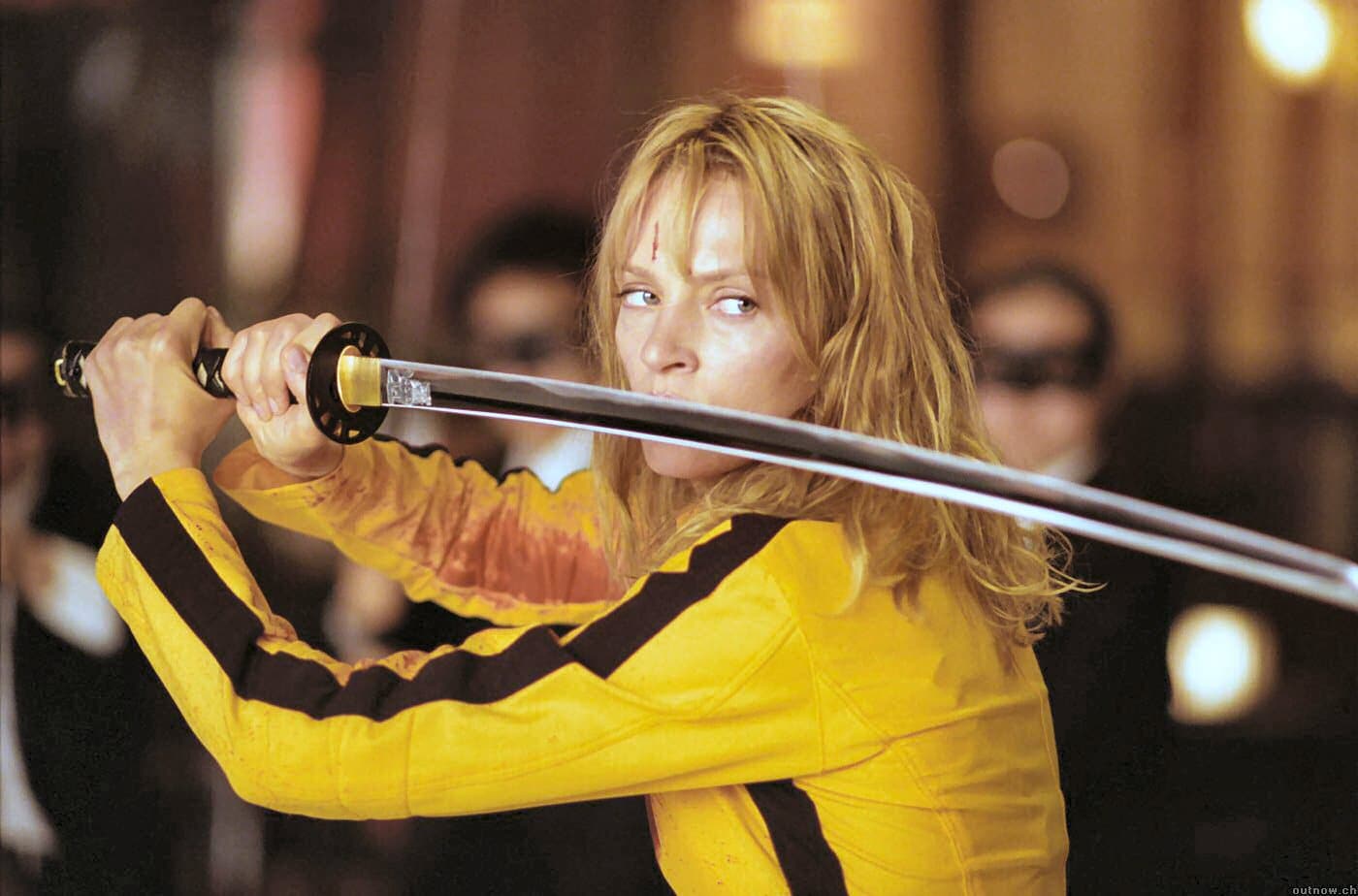The training.
At last, we've reached the epic conclusion of Quentin Tarantino's "Kill Bill" saga (Okay, let's just pretend that this is the first time that I have seen it), and unlike what many have expected it to be, "Kill Bill: Vol. 2" is surprisingly more patient, mature and emotionally articulate compared to its predecessor.
If "Kill Bill: Vol. 1" is, as what Roger Ebert has stated in his review of the film, "all about storytelling and no story", this film, in comparison, is a perfect amalgamation of style and substance, which Quentin Tarantino has perfected in blending over the years.
This time, we don't have any gargantuan swordfights between Uma Thurman's "The Bride" and 80 other men, but what we surely have in this picture is genuine drama and a hint of heart. But that does not necessarily mean that "Kill Bill: Vol. 2" does not have any time left for some genuinely pleasurable ass-kicking courtesy of our vengeful bride. It sure does, of course. It's only that the fight sequences and moments of cruelty are far more compelling and emotionally involving this time around.
As much as I love the showdown at the House of Blue Leaves between the bride and O-Ren Ishii's (played by Lucy Liu in "Kill Bill: Vol. 1") "Crazy 88" in "Kill Bill: Vol.1", there's honestly little to no emotional connection between me and the very essence of the blood-drenched sword ballet whatsoever. But here in this film, we are now more drawn and more empathetic towards the bride's self-imposed task of exacting revenge against those who literally gunned her down. Damn, we know that she can survive the House of Blue Leaves showdown in the first volume. But now, with "Kill Bill: Vol. 2" taking on a more grounded approach, can she still handle it all?
In the first film, we are quite affectionate towards the bride's revenge but we are just too awed with the visual stylishness on display that we take her path of destructive revenge in the first film merely as a showcase of Tarantino's auteur flamboyance. But with "Kill Bill: Vol. 2" now preferring a slower pace, evidently shown in the film's opening scene of the bride's serene wedding dress rehearsal minutes before Bill and company blow her and her loved ones away, we are now more acquainted with the bride not just as a character that simply represents Tarantino's patented cinematic style but as a living, breathing character with a highly justifiable motive behind her every slicing of limbs and poking out of eyeballs.
We are also introduced more to Elle Driver (Daryl Hannah), the eye-patched femme fatale who's the most painful thorn within the bride's throat next to Bill himself, and Bud (Michael Madsen), Bill's slacker of a brother who also had a hand in the infamous pre-wedding massacre. Oh and then there's also Pai Mei, played by Gordon Liu (who has already played the "Crazy 88" leader in "Kill Bill: Vol. 1"), a kung-fu master that's obviously Quentin Tarantino's great ode to the stereotypical 'martial arts master' character in countless genre films of the past with his overlong white mustache and exaggeratedly thick and contoured white eyebrows.
And finally, there's Bill, played by David Carradine in what may be his most memorable character next only to Caine in "Kung Fu". Possessing the looks of a murderously ragged old man yet armed with the gentle demeanor of an old-fashioned lover, Carradine has perfectly captured the essence of Bill. For the record, I believe that Bill is not a villain as per what the word's typical meaning denotes. For that, Tarantino is truly commendable in how he has handled this particular character perfectly.
There's a moment in the film where Bill, now face to face with the bride herself, explains himself as to why he has done the murderous deed. As if stating that his violent nature is imprinted deep within his soul and cannot be erased, he simply stated that he's a downright murderous bastard and he just acted based on his immediate compulsions when he found out that the bride, his former flame, is now about to be married to someone else. Though it cannot be denied that Bill is the monstrous incarnation of aggressive masculinity (he can't take romantic defeat), Quentin Tarantino is emotionally aware enough to depict Bill as a villain that's capable of explaining himself.
For some, "Kill Bill: Vol. 2's" climax is highly anti-climactic because it has not exceeded the bar that the first film has set in terms of confrontational swordfights and bone-crashing fisticuffs. But seeing the dramatic potential of such a tale of revenge, Tarantino chose to be more calmly elegiac with it rather than being shallowly aggressive. It may not have ended with both barrels blazing (or 'both katanas shining' if you want to remain consistent with the martial arts analogy) in terms of action-packed physicality, but the film is still highly satisfying not because of its physical pay-off but because of its ultimate emotional confrontation between the vengeful woman and the man who has made this feeling possible within her.
"Revenge is a dish best served cold" is the film's opening quote. For the bride, she served it straight from the freezer, but still, tears were shed. Revenge is a sad venture, and the film is fully aware of that fact.
FINAL RATING






